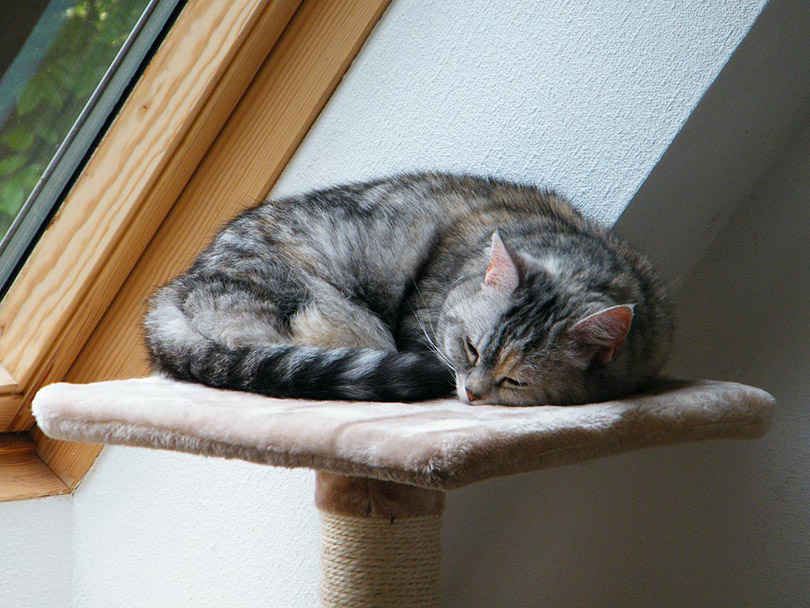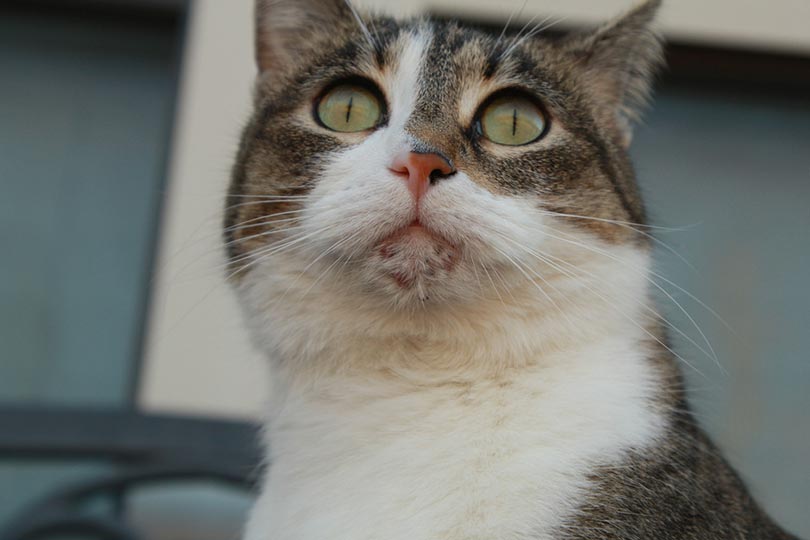Can You Use Hydrogen Peroxide on Cats? Vet Approved Advice
By Brooke Bundy
Updated on
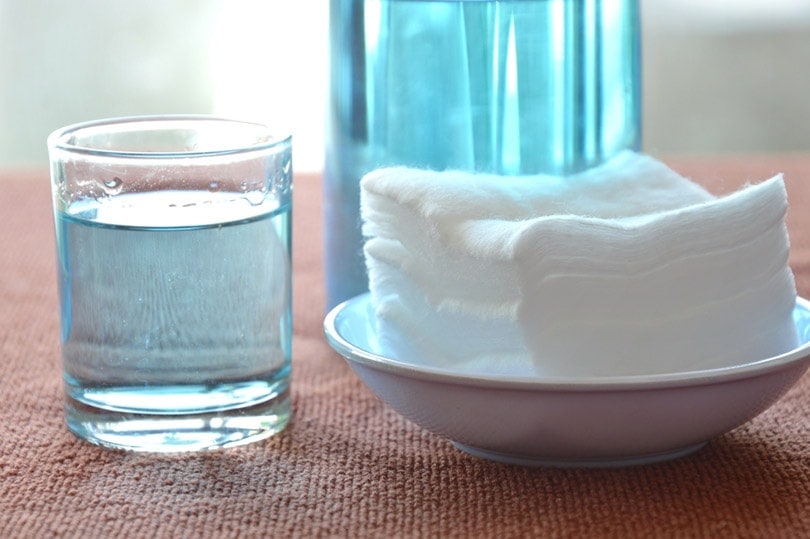
If your cat gulped down a piece of dark chocolate or cut their paw on the glass they broke, you’re probably wondering if hydrogen peroxide works as a quick solution for their ailment without having to go to the vet. In humans, hydrogen peroxide is used as a mild antiseptic that is applied to cuts or burns to prevent infection. For canines, veterinarians sometimes suggest giving mild doses to induce vomiting1. Cats have more sensitive skin and tummies, though, so hydrogen peroxide isn’t a good solution for cats. It is a dangerous chemical that can damage healthy tissue and even cause potentially fatal intestinal bleeding if your cat ingests it.
What Is Hydrogen Peroxide?
Hydrogen peroxide is a synthetic chemical that’s used for disinfecting human wounds. It has similar cleaning properties to bleach but isn’t quite as strong. In dogs only, rarely a small amount of hydrogen peroxide can be used to safely induce vomiting, but only if recommended by a veterinarian.
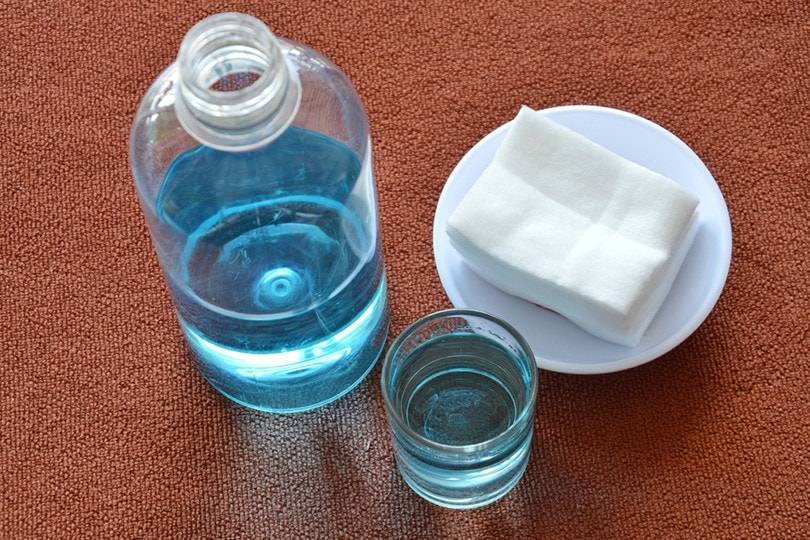
Why Can’t I Use Hydrogen Peroxide on My Cat?
While hydrogen peroxide had previously been used to induce vomiting in dogs before newer medications came along, hydrogen peroxide should never be used on cats. A cat’s stomach is too sensitive for hydrogen peroxide. Ingestion may cause inflammation, ulcers, and tissue damage leading to intestinal bleeding, which can be fatal.
- Nausea
- Vomiting
- Bloody stools
- Difficulty breathing
- Foaming in the mouth
If you suspect your cat may have snuck into your cleaning cabinet, you should call your vet at once.
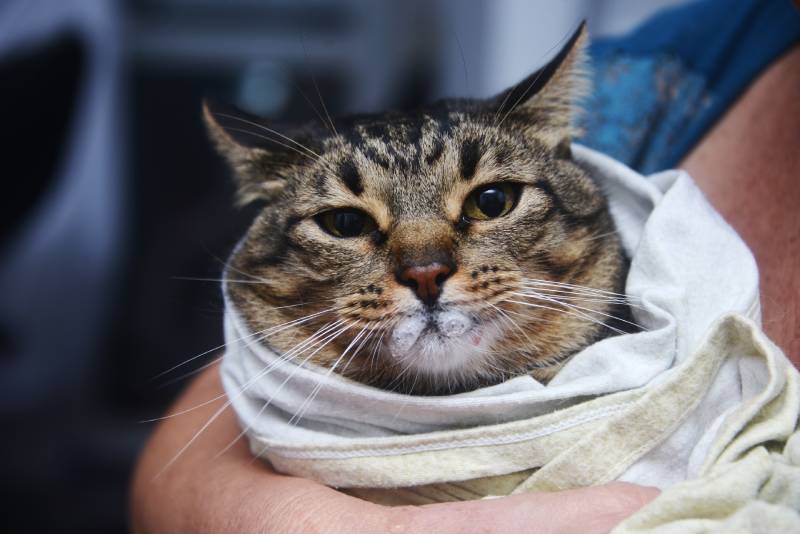
What to Do If Your Cat Becomes Injured
Unfortunately, there’s no way to safely induce vomiting at home for cats, so if your cat swallowed a clump of grapes, they’ll likely have to go to the vet. As for injuries, clean the affected area with water and contact your vet. They may direct you to apply salve or bring them in for treatment.
Some people say you can apply a very diluted solution of hydrogen peroxide to your cat’s wound. However, this chemical damages healthy tissue as it kills the bad bacteria, so we recommend skipping this DIY solution and calling your vet for advice instead.
While we’re on the subject of bad advice, we would also like to let you know that the old wisdom of giving your pet an excessive amount of salt to induce vomiting has been repealed. Cats and dogs do need salt in their diet, but too much can result in sodium poisoning. Serious cases can be fatal, so you should never feed them an overabundance of salt.
Felines are also intolerant to an alarming number of common household cleaning products similar to hydrogen peroxide. Disinfecting agents such as Lysol, ammonia, formaldehyde, and many essential oils pose problems for cats, especially if they’re swallowed. While ingesting these substances raises the highest risk of adverse reactions, cats are so sensitive to some of these cleaners that merely inhaling a concentrated amount may cause an unpleasant reaction.
Conclusion
While you may be able to treat mild cuts and wounds at home, you’ll always have to go to the vet to safely induce your cat to vomit. Hydrogen peroxide should never be given to your cat since it can cause deadly intestinal bleeding. Some pet parents use it as a mild antiseptic because it does a great job at killing bacteria, but unfortunately, it’s at the cost of damaging the surrounding healthy tissue. Since cats have sensitive needs that differ from us and even dogs, it’s always advisable to call a veterinarian for advice when they get into scrapes.
Featured Image Credit: pedphoto36pm, Shutterstock





